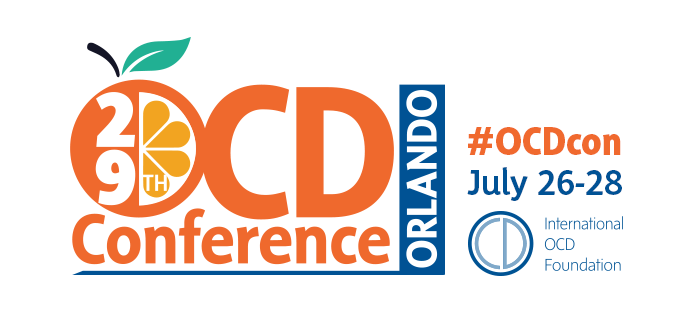
A lot of my clients and readers often ask, “Is Anxiety Sin?” Here’s the answer I’ll give you today: Maybe, maybe not. As we do a deep dive into this topic in three parts, we will discover, however, that the faithful are often fearful.
Fear Is Not Always Problematic, But Each Person Has A Different Relationship To It
Just like faith, the question of sin deals with issues of the heart. Though some sins are pretty universal, some are refined to the individual or based on their actual intent regardless of the specifics involved. God looks at the heart (1 Samuel 16:7).
- Am I seeking God?
- Do I listen and obey what He has made clear?
- Do I ask forgiveness when I make mistakes?
- Am I open to correction?
- Have I received Christ’s love and forgiveness?
Sin is a topic that is much misunderstood and used as a pejorative word- and one that many of us throw at ourselves or others in ways that God doesn’t even intend us to (Isaiah 55:8-9). There are a few different nuances to describing sin, but for our purposes, I will go with the definition that sin is an offense against God (either passively or actively).
What Is The Role of Fear?
Biologically and psychologically, we can argue fear is a warning system that primes our body and brain to be ready to face a threat. It can be useful and protective. It can also experience errors and otherwise be impacted by the reality of being human: mistakes.
At some level, we have a brain whose biology clearly impacts us. Evidence-based treatments are powerful in helping many people treat their disorders effectively (most people with Anxiety, OCD, PTSD, depression, etc.). If you’re reading this, you may believe with me that there’s more going on. Body, mind, spirit. Biological, psychological, social, and spiritual.
The Faithful Who Were Fearful
As we study the role of fear and anxiety in our physical being, let us consider its role spiritually.
Fear and anxiety are never- not once– punished or disciplined directly as sin in the Bible. There are only occurrences when fear is in the context of disobedient action/inaction (Genesis 3:10; 1 Samuel 17:24; Luke 19:21, Hebrews 10:28-31).
However, there are many examples in the Bible where the faithful were fearful. And it’s clear from these narratives that they are still considered godly characters despite fear and anxiety:
-
- Gideon, in Judges 6:12 is called a “mighty man of valor.” He was asked by God to tear down the altar of the false idol Baal, and to build an appropriate altar to God. It’s noted in verse 27 that he was afraid of his family, and so he did all of this by night. This is an interesting occurrence where God didn’t actually specify whether to do this at night or daytime. In fact, when someone is punished, it typically relates to violating something that God made very very clear, even if it’s odd us (see the passage where one of David’s servants was killed for inappropriately touching the ark of the covenant in 2 Samuel 6- David himself was mad about God’s judgment there). Hebrews 11:32 ultimately makes it clear God counted Gideon righteous because of faith.
- Nicodemus, who had a prominent position in society, visited Jesus at night the first time he met him (John 3), And though he publicly stood up for a legal policy related issue that affected Jesus (John 7:50-51), he still served Christ after his death at night (John 19:38-42).
- Joseph of Arimathea, also with a prominent position (Mark 15:43) served Jesus secretly BUT was still considered a righteous man (Luke 23:50).
- Peter, always the impulsive loudmouth who God literally interrupted while he was being ridiculous (Matthew 17:1-9; I mean, what do you do with someone who won’t stop talking? ☺️) is maybe the classic example of a man ready to fight (John 18:10) and blurt out he believes Jesus is God (Matthew 16:13-20) while simultaneously ready to run away out of fear or deny Jeus (Mark 14:50; Luke 22:54-62).
- The settlement of Reuben, Gad, Manasseh in Joshua 22:10-32, specially v. 24. acted out of fear that turned into healthy motivation– by building their own altar to God. It appeared at first they were being idolatrous, which the western tribes of Israel almost started a civil war over until their intentions were clarified. The Hebrew word for “fear” in this passage is used for “anxiety/concern,” rather than the Hebrew word that’s used for “reverence/piety” (there are many different words that translate as fear/anxiety/afraid in the Bible, all with slightly or significantly different meanings. Check out Got Questions for further explanation on this deep passage.
- This is a great, important side note: God isn’t just ready to zap people with lightning for disobedience. In fact, instances where God allowed/brought suffering as a result of his punishment, there are always warnings, and typically years and years- sometimes even centuries- of pleas to change.
- Thomas. Though it is possible he might not have been “doubting Thomas” (John 20:25-29) out of fear, it’s not a stretch to consider that human fears were at play in his eponymous doubting.
- Jacob. In Genesis 28:17, the “Jacob’s ladder” passage, he was afraid and worshiped.
- Jehoshaphat. In a clear side by side instance, the future king of Israel, Jehoshaphat “feared, and set himself to seek the Lord” (2 Chronicles 20:3a). It is clear that in his fear, over time he continued to seek God and did what was right in God’s eyes (1 Kings 22:43).
Did you get that? Feared…AND set himself to seek the Lord.”
For this reason I would argue that fear in and of itself is not necessarily a lack of trust in God. Faith is a response to fear, not the lack of fear. It can reflect such distrust, but not necessarily. Furthermore, distrust in God sometimes receives a gentle response, such as the disciples, when, during a brutal storm they feared for their lives (Matthew 8:24-26). Jesus called this out as a lack of faith, BUT was gentle and didn’t give a blistering critique of their ‘sin.’ Rather he told them to look towards him in faith.
“Fear in and of itself is not necessarily a lack of trust in God. Faith is a response to fear, not the lack of fear.”
For Next Time…
In part two of this series, we will consider how and why giving place to address fear can actually bring more freedom. Finishing out the series, you’ll get an introduction to why fear may or may not be Satan, either.








Leave a Reply